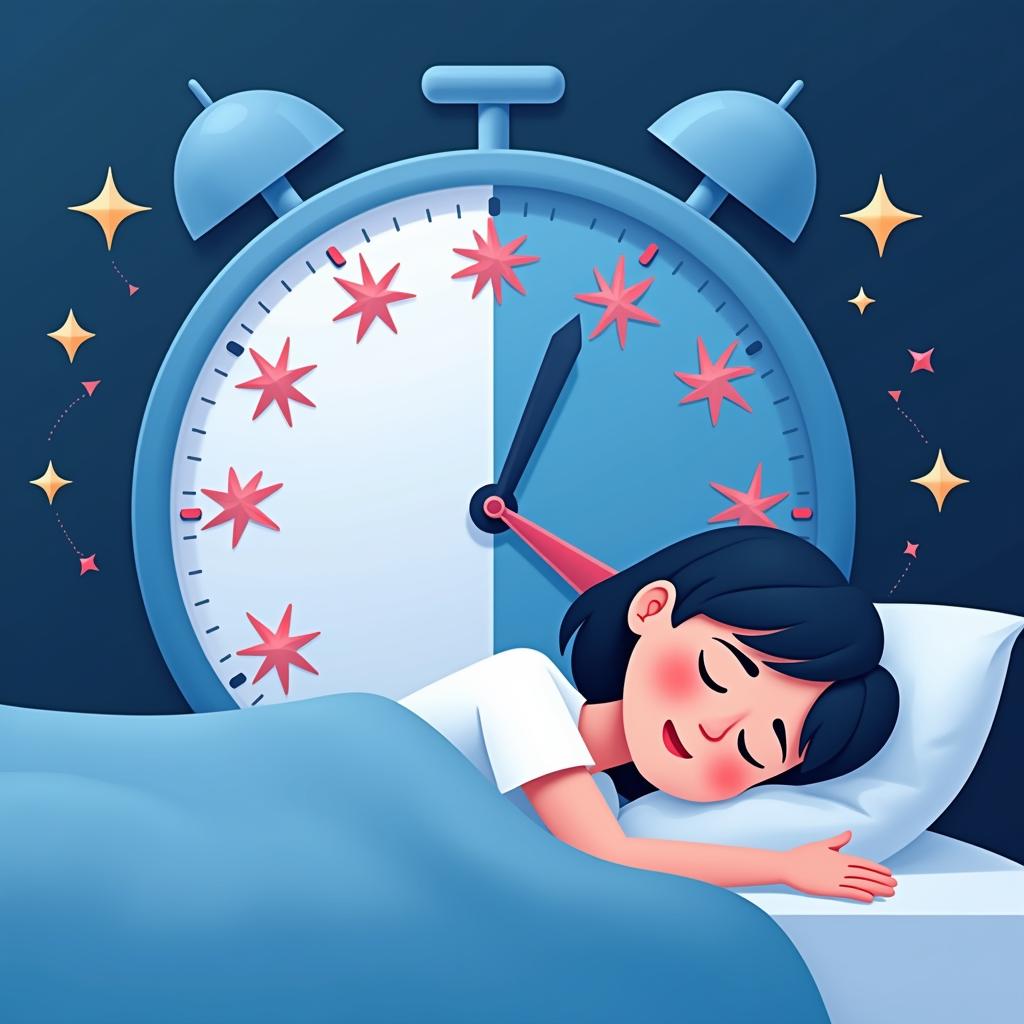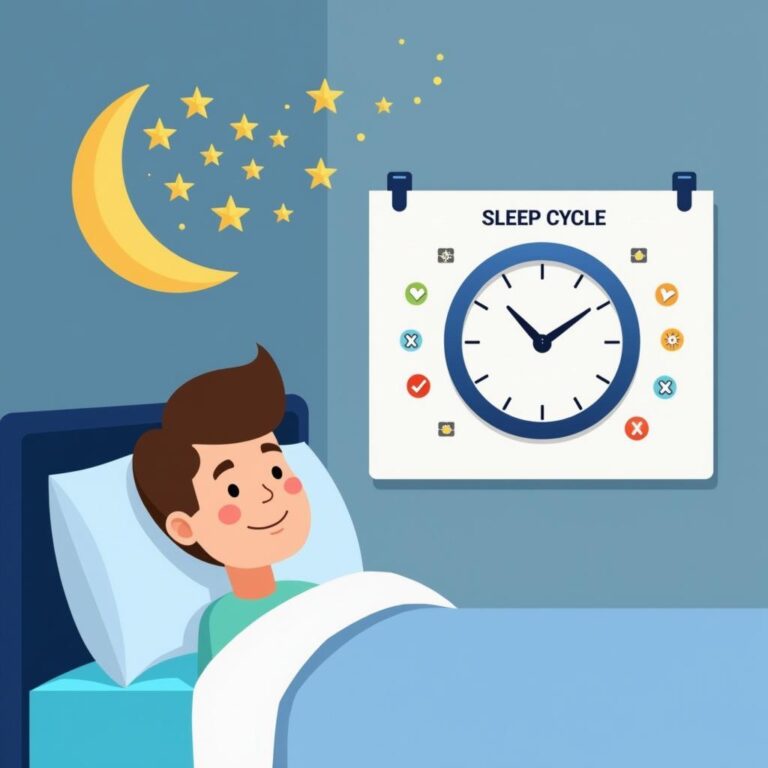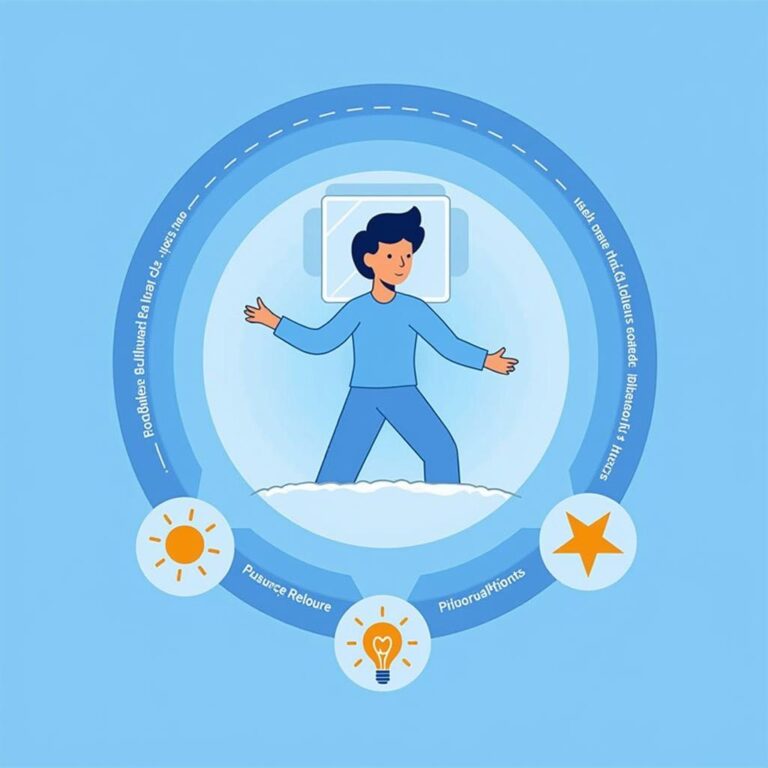In today’s fast-paced world, mastering the sleep cycle is an essential skill for anyone looking to maximize productivity. Sleep affects every aspect of our lives, from cognitive function to emotional stability. Understanding and optimizing your sleep cycle can lead to improved performance, better decision-making, and overall well-being. This article will delve into the science of sleep, the importance of various sleep stages, and practical tips for mastering the sleep cycle.
The Science Behind Sleep Cycles
Sleep is not just a passive state of rest. It consists of multiple cycles that repeat throughout the night, typically lasting about 90 minutes each. These cycles include different stages of sleep, which can be broadly categorized into two main types: non-REM (Rapid Eye Movement) and REM sleep.
Non-REM sleep is further divided into three stages:
- Stage 1: The lightest stage of sleep, lasting a few minutes. This is when you transition from wakefulness to sleep.
- Stage 2: A period of deeper relaxation, where your heart rate slows and body temperature drops. This stage lasts for about 20 minutes.
- Stage 3: Deep sleep, also known as slow-wave sleep. This stage is crucial for physical recovery and hormonal regulation.
Following these non-REM stages, the body enters REM sleep, which is characterized by rapid eye movements and increased brain activity. This stage is vital for memory consolidation, learning, and emotional processing.
The Importance of Mastering Each Stage
To achieve optimal productivity, it’s crucial to understand the importance of each stage of the sleep cycle. Here’s how each stage contributes to your overall health and functionality:
Stage 1: Preparation for Sleep
Stage 1 serves as an essential transition for your body and mind. Mastering this stage helps you slip into sleep more effortlessly, reducing the time it takes to fall asleep. Techniques like deep breathing and meditation can aid in maximizing this crucial period.
Stage 2: Storage and Strengthening
During Stage 2 sleep, your brain begins consolidating memories and reinforcing learned information. By ensuring you complete several 90-minute cycles, you will benefit from better retention of information, which ultimately enhances your work performance. Aim for 7-9 hours of sleep to reap the most benefits from this stage.
Stage 3: Recovery and Repair
Deep sleep is vital for physical health. It is during this stage that the body repairs tissues, builds bone and muscle, and strengthens the immune system. Prioritizing deep sleep through consistent sleep schedules and sleep-friendly environments can significantly impact your overall productivity levels.
REM Sleep: Creativity and Problem-Solving
REM sleep plays a critical role in emotional regulation and creative thinking. Individuals who have sufficient REM sleep are often better at problem-solving and display higher creativity in their tasks. Techniques like keeping a consistent sleep schedule can help maximize the quality and quantity of REM sleep.
Tips for Mastering the Sleep Cycle
Now that we understand the different stages of the sleep cycle and their significance, it’s time to explore practical tips for mastering your sleep cycle effectively:
1. Establish a Sleep Schedule
Create a consistent wake-up and bedtime. Your body thrives on routine, and establishing a regular sleep schedule helps regulate your body’s internal clock, making it easier to fall asleep and wake up feeling refreshed.
2. Create a Sleep-Inducing Environment
Your bedroom should be conducive to sleep. Keep the room dark, cool, and quiet. Consider using blackout curtains, eye masks, and white noise machines to minimize disruptions.
3. Limit Screen Time Before Bed
Blue light emitted by screens can interfere with your sleep cycle. Aim to disconnect from digital devices at least 30 minutes before bedtime, allowing your brain to relax and prepare for sleep.
4. Watch Your Caffeine and Alcohol Intake
Both caffeine and alcohol can significantly impact your sleep cycles. Limit caffeine consumption in the afternoon and evening, and although alcohol may make you feel sleepy, it can disrupt your REM sleep. Aim to moderate it for a better night’s sleep.
5. Incorporate Relaxation Techniques
Practicing relaxation techniques such as yoga, deep breathing exercises, or meditation before bed can help reduce stress and anxiety, making it easier to transition into the various sleep stages smoothly.
6. Track Your Sleep
Utilizing sleep-tracking apps or wearable devices can provide insights into your sleep patterns. This data can help you identify areas for improvement and understand how different factors influence your sleep quality.
7. Exercise Regularly
Regular physical activity can greatly benefit your sleep quality, making it easier to fall asleep and enhancing the depth of your sleep cycles. However, avoid vigorous exercise close to bedtime, as it may have the opposite effect.
Conclusion
Mastering the sleep cycle is key to unlocking your full potential for productivity. By understanding the components of the sleep cycle and implementing strategies to optimize each stage, you can improve your cognitive function, emotional well-being, and physical health. Prioritizing sleep not only enhances your ability to perform in daily tasks but also contributes to a happier, healthier life. Begin taking actionable steps to master your sleep cycle today, and watch as your productivity flourishes!







